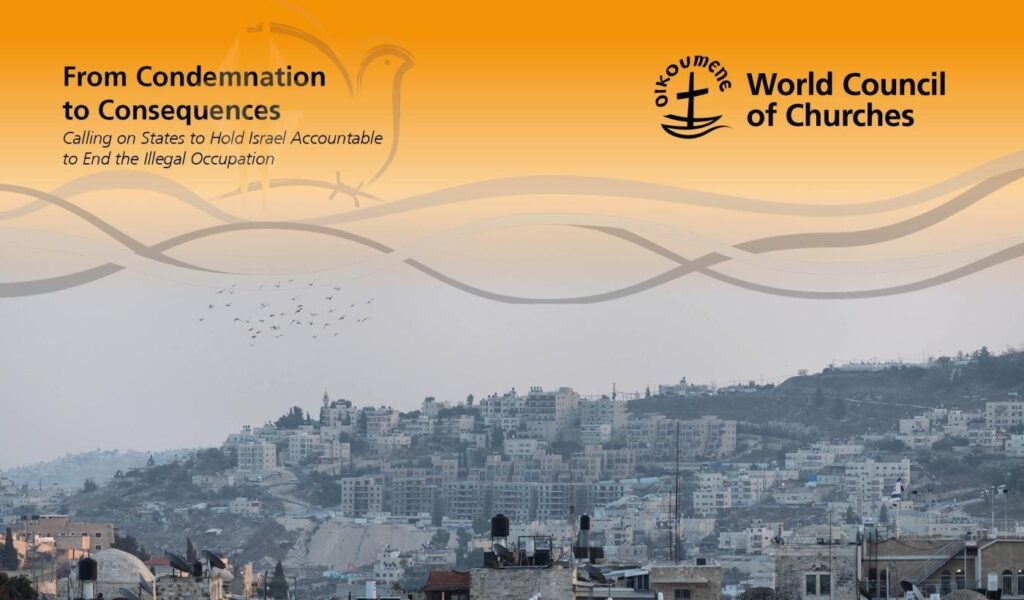WCC NEWS: “Right to Education in East Jerusalem” video shows stark reality—and actions to take
Images and interviews share stories of young people like Tuqa, a student from East Jerusalem who was arrested by Israeli forces when she was coming home from school.
Israeli forces asked about her family, and her father, then took her by car to Hasharon Prison. The charge was that she was carrying a Palestine ministry schoolbook, and she was put under home arrest.
“Since my arrest, I take a different route on the way to school, so that it doesn’t happen again,” says Tuqa, and she goes on to say: “I am afraid.”
The video—which also presents facts about the violation of international law, and of human rights—is part of a new WCC campaign “From Condemnation to Consequences: Calling on states to hold Israel accountable to end the illegal occupation.” The video also shows commitments that are normally forgotten by the world: that Israel is a signatory to the Convention on the Rights of the Child; and in August 1994 Israel signed an agreement whereby all educational authorities in East Jerusalem were transferred to Palestinians.
The campaign, which began after the war that broke out on 28 February, between the United States and Israel with Iran, remains focused on the ongoing de-facto annexation by Israel of the Palestinian territories occupied since 1967. It focuses also on the belief that resolving the hostilities in Palestine and Israel, based on justice, is the cornerstone for peace in the entire region.
“Children must enjoy their school experience instead of walking frightened to their classroom, must have the opportunity to learn in the context of their national identity instead of feeling marginalized, and to dream of a bright future instead of worrying about police chasing them in every corner,” said George Sahhar, advocacy officer with the WCC Jerusalem Liaison Office and the WCC Ecumenical Accompaniment Programme in Palestine and Israel.
“From Condemnation to Consequences” runs through 31 March.

